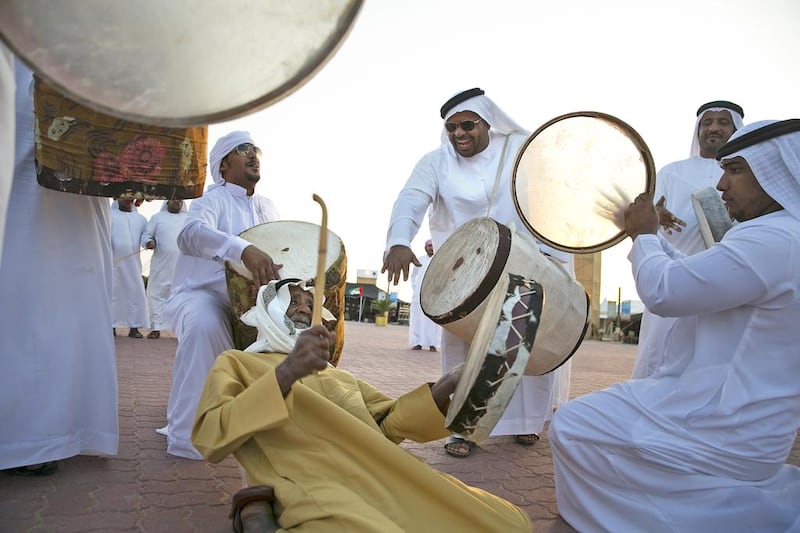For some of Mohammed Al Maamari’s generation, the traditional Emirati way of life survives only through the stories of their parents and grandparents.
That was why, said Mr Al Maamari, a 27-year-old police officer, he attended the Sheikh Zayed Heritage Festival several times in recent years to help him better understand this bygone era.
Mr Al Maamari said this year’s event at Al Wathba in the capital was the biggest yet, although he hoped it would continue to grow.
“We cannot forget the traditional things because they were with our fathers,” he said.
Now in its fourth year, the free public festival is a two-week long celebration of Emirati culture.
Its first week included events such as camel, horse and dog racing, falconry shows and a shooting contest. The camel races offered prizes worth a total of Dh30 million, said Salem Al Mostaka, the festival spokesman.
There was also a contest to find the best camel milk, with Dh200,000 worth of prizes on offer.
Alongside the competitive element at the fair is a host of historical and cultural attractions.
For example, the festival began on December 2 with an operetta about Sheikh Zayed, the founding President, which featured more than 3,000 artists.
Mr Al Mostaka said about 24,000 people visited on opening day, and an estimated 100,000 during the first week. While the majority of the visitors were Emiratis, he said guests from the US, Germany, Turkey and other Arabian Gulf countries also attended.
Reem Alawi, an organiser, said the high turnout for the event “shows that we don’t just forget our traditional ways”.
One of the most popular exhibits was hosted by the National Centre for Documentation and Research, which featured photographs of Sheikh Zayed and other government officials, as well as old newspaper front pages and weaponry.
The exhibition also included medals presented to Sheikh Zayed by Britain’s Queen Elizabeth II and the former Lebanese president Amine Gemayel.
There was also a heritage village that featured traditional food, handmade clothing and home decorations, such as carpets made from palm leaves. Sitting on cushions in front of small cooking stations, women from the General Women’s Union cooked dishes such as chickpeas and sweet bread, then offered them to visitors for free.
Inside the festival souq, there were about 120 stalls selling crafts, incense, oud perfume, coffee, spices and clothing. One of the stall holders was Bushra Mohammed, 42, who runs her own business, Silver Fabric Boutique, from her home in Al Ain.
She said that while many of the women selling their wares at the festival did not necessarily need to work, “they feel better when they are working”.
For the first time this year, the festival included a recreation of a 1957 police station, complete with men dressed in the khaki-coloured uniforms and orange kaffiyehs worn by the officers in that period.
Another visitor was Miriam Al Mazrouei, an 18-year-old college student, who attended with a group of her classmates. For her the festival was “all about the food”.
Meanwhile, Hamed Al Bloshi, a 27-year-old law student, said he was impressed by the event but would have liked to have seen more about villagers’ lifestyles before the discovery of oil, such as exhibits detailing the sea-based economy.
Mr Al Maamari also hoped that in future years organisers might include an exhibition on traditional agricultural methods, such as the falaj irrigation system.
“We must save these things for us and our children,” he said.
The event, which has been organised by the Ministry of Presidential Affairs, runs until Saturday and is open from 1pm to 10pm.
lcarroll@thenational.ae






